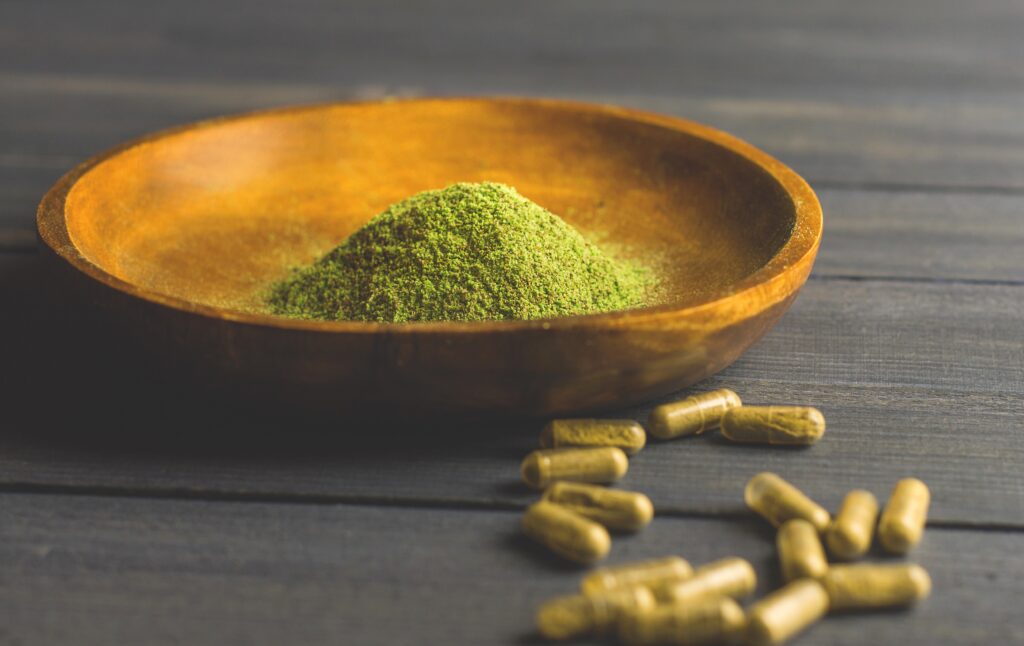What is Kratom 7-OH Detox? Understanding Withdrawal from 7-Hydroxymitragynine
If you or someone you love has been using kratom—particularly products high in 7-hydroxymitragynine (7-OH)—you may be wondering what happens when you stop. Kratom 7-OH detox refers to the process of safely withdrawing from kratom’s most potent alkaloid, which can create physical dependence and challenging withdrawal symptoms.
At 7 Summit Pathways in Tampa, Florida, we understand that kratom use has become increasingly common, especially as people seek alternatives to prescription pain medications. However, what many don’t realize is that kratom—particularly concentrated 7-OH products—can lead to dependence that requires professional support to overcome.
If you’re in Tampa or anywhere in Florida and struggling with kratom dependence, you’re not alone. Let’s walk through what kratom 7-OH detox involves, what to expect during withdrawal, and how professional treatment can help.
Understanding Kratom and 7-Hydroxymitragynine (7-OH)
Kratom is a tropical tree native to Southeast Asia. Its leaves contain compounds called alkaloids, with the two most significant being mitragynine and 7-hydroxymitragynine (7-OH). While mitragynine is more abundant, 7-hydroxymitragynine is significantly more potent and is primarily responsible for kratom’s opioid-like effects.
According to the National Institute on Drug Abuse (NIDA), kratom’s active compounds interact with opioid receptors in the brain, producing effects similar to both stimulants and opioids depending on the dose. At lower doses, kratom acts as a stimulant, while higher doses produce sedative and pain-relieving effects similar to opioids.
Recent years have seen the emergence of concentrated kratom products specifically enhanced with 7-OH, which significantly increases potency and the potential for dependence. These products are marketed under various names including “7-OH kratom extract,” “enhanced kratom,” or simply “7-OH.”
The Drug Enforcement Administration (DEA) has expressed concern about kratom’s potential for abuse and dependence, though it remains legal in most U.S. states, including Florida.
Why Is 7-OH Detox Different from Regular Kratom Detox?
Products high in 7-hydroxymitragynine present unique challenges during detox:
Higher Potency: 7-OH is approximately 13 times more potent at mu-opioid receptors than mitragynine, according to research published in the Journal of Medicinal Chemistry. This means stronger dependence can develop more quickly.
Intensified Withdrawal: Users of concentrated 7-OH products often experience more severe withdrawal symptoms compared to traditional kratom leaf powder.
Opioid-Like Dependence: Because 7-OH acts more powerfully on opioid receptors, the withdrawal experience closely mirrors opioid withdrawal, potentially including more intense physical symptoms.
Unpredictable Product Strength: Many 7-OH products lack standardization, making it difficult to know exactly how much of the compound you’ve been consuming—and therefore harder to predict withdrawal severity.
Kratom 7-OH Withdrawal Symptoms: What to Expect
According to the Substance Abuse and Mental Health Services Administration (SAMHSA), kratom withdrawal symptoms are similar to opioid withdrawal but generally less severe than withdrawal from prescription opioids or heroin. However, concentrated 7-OH products may produce more intense symptoms.
Common kratom 7-OH withdrawal symptoms include:
Physical Symptoms:
- Muscle aches and joint pain
- Tremors and restlessness
- Sweating and chills
- Nausea, vomiting, and diarrhea
- Runny nose and watery eyes
- Dilated pupils
- Rapid heartbeat
- Fever
- Fatigue and weakness
Psychological Symptoms:
- Anxiety and irritability
- Depression and mood swings
- Insomnia and sleep disturbances
- Difficulty concentrating
- Intense cravings for kratom
- Agitation and restlessness
Unique Considerations:
- Some users report more severe psychological symptoms with 7-OH compared to traditional kratom
- Intensity varies based on dosage, frequency of use, and individual factors
- Co-occurring mental health conditions may complicate withdrawal
Kratom 7-OH Detox Timeline: How Long Does Withdrawal Last?
Understanding the timeline can help you prepare for medical detox. While individual experiences vary, kratom 7-OH withdrawal generally follows this pattern:
6-12 Hours After Last Use:
- Early withdrawal symptoms begin
- Anxiety and restlessness start to increase
- Some users experience mild physical discomfort
Days 1-3 (Acute Phase):
- Symptoms peak during this period
- Physical symptoms are most intense
- Insomnia, muscle aches, and gastrointestinal issues are common
- Psychological symptoms like anxiety and irritability intensify
Days 4-7:
- Physical symptoms begin to subside
- Psychological symptoms may persist or even intensify
- Sleep difficulties continue
- Energy levels remain low
Week 2 and Beyond (Post-Acute Phase):
- Most physical symptoms have resolved
- Psychological symptoms like depression, anxiety, and cravings may persist
- Sleep patterns gradually normalize
- Post-acute withdrawal syndrome (PAWS) may continue for weeks or months
Research published in the International Journal of Drug Policy notes that the duration and severity of kratom withdrawal can be influenced by factors including:
- Dosage and frequency of use
- Duration of kratom use
- Whether using concentrated 7-OH products vs. traditional leaf powder
- Individual metabolism and health factors
- Co-occurring substance use or mental health conditions
Medical Detox for Kratom 7-OH: Why Professional Support Matters
While kratom withdrawal is rarely life-threatening, professional medical detox offers significant advantages, especially for those who have been using concentrated 7-OH products.
At 7 Summit Pathways in Tampa, our medical detox program provides:
24/7 Medical Monitoring: Medical professionals monitor your vital signs and overall health throughout the detox process, ensuring your safety and comfort.
Medication-Assisted Support: While there are no FDA-approved medications specifically for kratom withdrawal, certain medications can help manage specific symptoms:
- Anti-nausea medications for gastrointestinal symptoms
- Sleep aids for insomnia
- Anti-anxiety medications for psychological symptoms
- Pain relievers for muscle aches and discomfort
According to SAMHSA guidelines, medication-assisted treatment approaches used for opioid use disorder may be considered in cases of severe kratom dependence, though research in this area is still emerging.
Nutritional Support: Proper nutrition and hydration are crucial during detox. Our team ensures you receive balanced meals and adequate fluids to support your body’s healing.
Emotional Support: Withdrawal is as much a psychological challenge as a physical one. Our compassionate staff provides encouragement and support throughout the process.
Safe, Supervised Environment: A structured environment free from triggers helps you focus on healing without the temptation to relapse.
After Detox: Continuing Your Recovery Journey
Detox is just the first step in recovery from kratom dependence. Many people who use kratom do so to manage pain, anxiety, or other underlying issues. Without addressing these root causes, the risk of relapse remains high.
After completing detox at 7 Summit Pathways in Tampa, we recommend continuing treatment through one of our comprehensive programs:
Inpatient Treatment: Our residential addiction treatment provides intensive, 24/7 care in a supportive environment. This option is ideal for those who need structured support and have co-occurring mental health conditions.
Partial Hospitalization Program (PHP): PHP offers intensive daily treatment while allowing you to return home in the evenings. This bridge between residential and outpatient care provides structure with more flexibility.
Intensive Outpatient Program (IOP): IOP treatment allows you to maintain work and family responsibilities while attending several hours of therapy per week.
Outpatient Treatment: Outpatient treatment provides ongoing support through individual therapy, group sessions, and continued monitoring as you rebuild your life.
Dual Diagnosis Treatment: Many people using kratom struggle with co-occurring mental health conditions like depression, anxiety, or chronic pain. Our dual diagnosis program addresses both addiction and mental health simultaneously.
Evidence-Based Therapies for Kratom Recovery
At 7 Summit Pathways, we utilize proven therapeutic approaches to address the underlying factors contributing to kratom dependence:
Cognitive Behavioral Therapy (CBT): Research published by the National Institute on Drug Abuse shows CBT is highly effective for substance use disorders. CBT helps you identify and change thought patterns and behaviors that contribute to kratom use.
Group Therapy: Our group therapy sessions provide peer support and shared learning experiences. Many people find tremendous value in connecting with others facing similar challenges.
Trauma-Informed Care: According to SAMHSA, trauma is a significant factor in many substance use disorders. Our trauma therapy program addresses past traumas that may have contributed to kratom dependence.
Holistic Therapies: We incorporate holistic therapy options including mindfulness, meditation, and yoga to support whole-person healing.
Family Therapy: Addiction affects the entire family system. Our family therapy program helps repair relationships and builds a strong support network for your recovery.
Common Questions About Kratom 7-OH Detox
Can I detox from kratom at home? While some people successfully quit kratom without medical support, professional detox is recommended for those using high doses, concentrated 7-OH products, or who have tried unsuccessfully to quit on their own. Medical supervision ensures your safety and significantly improves comfort during withdrawal.
Is kratom 7-OH detox painful? Withdrawal discomfort varies by individual. Medical detox at 7 Summit Pathways includes symptom management to minimize discomfort and help you through the process as safely and comfortably as possible.
Will insurance cover kratom detox? Many insurance plans cover addiction treatment services including detox. Our team can verify your benefits and help you understand your coverage options.
What if I’ve been using kratom along with other substances? It’s common for people to use multiple substances. Be honest with treatment providers about all substance use so they can provide comprehensive, safe care. We treat substance addiction regardless of the substances involved.
Can I go back to work right after detox? Detox addresses the physical aspect of dependence, but recovery requires ongoing treatment. Most people benefit from continuing treatment through residential or outpatient programs before returning to normal activities.
Why Choose 7 Summit Pathways in Tampa for Kratom 7-OH Detox?
Located in Tampa, Florida, 7 Summit Pathways offers comprehensive addiction treatment services tailored to your unique needs:
✅ Experienced Medical Team: Our healthcare professionals understand kratom dependence and provide evidence-based care.
✅ Comprehensive Treatment Options: From detox through residential and outpatient care, we support you throughout your entire recovery journey.
✅ Individualized Care Plans: We recognize that every person’s situation is unique and create personalized treatment strategies.
✅ Co-Occurring Disorder Treatment: We address mental health conditions alongside addiction for lasting recovery.
✅ Beautiful Tampa Location: Our facility provides a healing environment close to Florida’s natural beauty.
✅ Insurance Accepted: We work with most major insurance providers to make treatment accessible.
✅ Compassionate Support: You’re not just a patient—you’re a person deserving of dignity, respect, and comprehensive care.
Take the First Step: Get Help for Kratom Dependence Today
If you’re struggling with kratom dependence—whether from traditional leaf powder or concentrated 7-OH products—professional help is available right here in Tampa, Florida. Recovery is possible, and you don’t have to face withdrawal alone.
The team at 7 Summit Pathways understands the unique challenges of kratom dependence. We’ve helped countless individuals safely detox and build lasting recovery. You deserve the same opportunity to reclaim your health and wellbeing.
Contact 7 Summit Pathways Today:
📞 Call us 24/7 at (813) 212-8129
📍 Visit us at 1910 Orient Rd, Tampa, FL 33619
Don’t let kratom dependence control your life any longer. Reach out today to learn more about our kratom detox program and take the first step toward freedom from dependence. Our compassionate admissions team is standing by to answer your questions and help you begin your recovery journey.
Recovery starts with a single decision. Make that decision today.
Clinical Sources & References
This article incorporates information from the following authoritative sources:
- National Institute on Drug Abuse (NIDA): Kratom research and information on opioid receptor activity
- Substance Abuse and Mental Health Services Administration (SAMHSA): Treatment guidelines and withdrawal management protocols
- Drug Enforcement Administration (DEA): Kratom regulatory status and public health concerns
- Journal of Medicinal Chemistry: Research on 7-hydroxymitragynine potency
- International Journal of Drug Policy: Studies on kratom withdrawal patterns and duration
For more detailed information on kratom and substance use disorders, visit:
- NIDA: https://nida.nih.gov/research-topics/kratom
- SAMHSA: https://www.samhsa.gov/
- National Library of Medicine: https://www.ncbi.nlm.nih.gov/
If you or someone you know is experiencing a substance use emergency, call 988 (Suicide and Crisis Lifeline) or 911 immediately.




